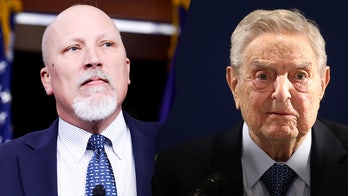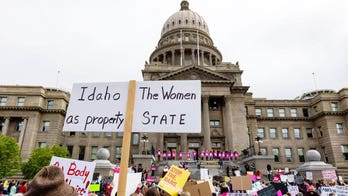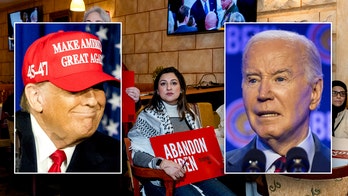I begin typing this article with trepidation, knowing with certitude that anything short of fulsome and unqualified praise for Rep. Ron Paul, the GOP’s libertarian candidate in the presidential primaries, will provoke scores of angry emails and Tweets from Paul’s famously fervent supporters, all accusing me of harboring (elite media) bias against their blunt-talking and unassailable hero.
Happens every time.
But as the Republican Party approaches its fourth balloting contest of the 2012 cycle – the winner-take-all Florida primary, to be held Tuesday and award 50 prized delegates to the nominating convention this summer – it has become ever clearer that the 76-year-old Texan, now serving in his 12th term in the U.S. House, has had a palpable impact on the race.
Paul has not yet won a caucus or primary, but he has won a significant number of votes. The congressman captured roughly 21 percent of the GOP primary electorate in Iowa; 23 percent in New Hampshire; and 13 percent in South Carolina. And unlike several of his rivals, Paul was able to collect the signatures necessary to ensure him a place on the Virginia ballot.
“Anybody above 10 percent, all the way up to 20 percent in some caucuses and primaries, you need to pay attention to,” said Ed Rollins, a longtime GOP campaign strategist and Fox News contributor. “My sense is he’ll have a lot of delegates. He’ll probably be third, at the end of the game. He’ll stay in to the bitter end. And I think it's very important that we reach out to those young people and his supporters and give him a role at the convention – a speech, whatever else it takes to keep him happy.”
Rollins’ comments echoed those of conservative radio host Laura Ingraham, who told listeners earlier this month that Paul’s support reflects a genuine displeasure with “big government conservatives,” which the party establishment can afford to ignore only at its own peril.
“There's a percentage of people who think we've gotten way overextended in our foreign policy, and who think that the government – even in conservative, so-called conservative hands, under George Bush – grew exponentially on the road to bankrupting us,” Ingraham said on her show on Jan. 11. “And those people, yeah, they hear Ron Paul's message, and they're showing up to vote for him. I think it's really wrong for people just to say it means nothing, and it's just a fluke, and it's a freak vote, and all of that. OK, keep doing that, and you might see his support build instead of wane.”
With his quirky populist style, antiwar platform and small-government message, Paul has attracted large numbers of young people under 30 to his campaign. He has also drawn occasional scorn from his fellow candidates and ordinary GOP voters.
“They caught you not telling the truth, Ron,” snapped former Sen. Rick Santorum, when Paul’s microphone malfunctioned at the ABC News debate in New Hampshire on Jan. 7.
“Dr. Paul has a long history of saying things that are false,” said Newt Gingrich at the same event.
And when Paul called for the United States to follow a “golden rule” in its foreign policy, and stop “endlessly bombing” foreign countries, he was greeted, at the Jan. 16 Fox News debate in Myrtle Beach, S.C., with boos from the audience.
Paul has also hit some rough patches with the news media, particularly when he was questioned about newsletters he published in the 1980s and 1990s that contained language some regarded as racist and anti-Israel. Paul has said he did not write the relevant passages, and does not know who did.
At the same time, there is evidence that Paul has, during the course of the debates and primaries, drawn his rivals closer to his own longstanding positions on domestic policy: smaller government and lower taxes, the sanctity of the Constitution and the wisdom of sound monetary policy. On the night that Gingrich won the South Carolina primary, the former House speaker told supporters that Paul, “on the issue of money and the Federal Reserve, has been right for 25 years.”
Paul is largely forfeiting the Florida contest to chase votes in caucus states like Maine, Colorado and Nevada, where campaign aides believe the strength of the field organization can make a real difference in capturing delegates.





